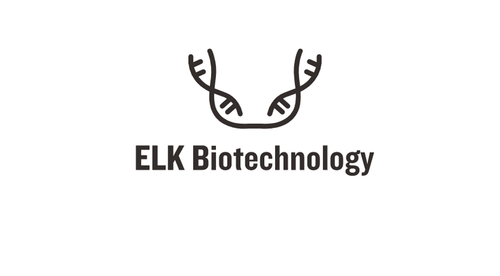Product Description
Pig Cystathionine-beta-synthase (CBS) ELISA Kit | AE62789PI | Abebio
Species Reactivity: Pig (Sus scrofa; Porcine)
Abbreviation: CBS
Alternative Name: HIP4; OTTHUMP00000109415|OTTHUMP00000109416|OTTHUMP00000109418|beta-thionase|cystathionine beta-synthase|methylcysteine synthase|serine sulfhydrase
Application: ELISA
Range: Request Information
Sensitivity: Request Information
Intra-Assay: ≤5.4%
Inter-Assay: ≤8.9%
Recovery: 0, 99
Sample Type: Serum, Plasma, Other biological fluids
Detection Method: Sandwich
Analysis Method : Quantitive
Test Principale: This assay employs a two-site sandwich ELISA to quantitate CBS in samples. An antibody specific for CBS has been pre-coated onto a microplate. Standards and samples are pipetted into the wells and anyCBS present is bound by the immobilized antibody. After removing any unbound substances, a biotin-conjugated antibody specific for CBS is added to the wells. After washing, Streptavidin conjugated Horseradish Peroxidase (HRP) is added to the wells. Following a wash to remove any unbound avidin-enzyme reagent, a substrate solution is added to the wells and color develops in proportion to the amount of CBS bound in the initial step. The color development is stopped and the intensity of the color is measured.
Product Overview: Cystathionine Beta Synthase acts as a homotetramer to catalyze the conversion of homocysteine to cystathionine, the first step in the transsulfuration pathway. The encoded protein is allosterically activated by adenosyl-methionine and uses pyridoxal phosphate as a cofactor. Defects in this gene can cause cystathionine beta-synthase deficiency (CBSD), which can lead to homocystinuria. Multiple alternatively spliced transcript variants have been found for this gene.The deduced 551-residue protein showed about 90% identity with the rat protein. Northern blot analysis identified a major 2.7-kb mRNA transcript.The gene is expressed as a 2.5-kb mRNA species mostly in liver and pancreas, with faint expression in brain, heart, kidney and lung. In addition, a 3.7-kb transcript was found in pancreas and liver.
Stability: The stability of ELISA kit is determined by the loss rate of activity. The loss rate of this kit is less than 5% within the expiration date under appropriate storage condition. The loss rate was determined by accelerated thermal degradation test. Keep the kit at 37°C for 4 and 7 days, and compare O.D.values of the kit kept at 37°C with that of at recommended temperature. (referring from China Biological Products Standard, which was calculated by the Arrhenius equation. For ELISA kit, 4 days storage at 37°C can be considered as 6 months at 2 - 8°C, which means 7 days at 37°C equaling 12 months at 2 - 8°C) .
 Euro
Euro
 USD
USD
 British Pound
British Pound
 NULL
NULL








